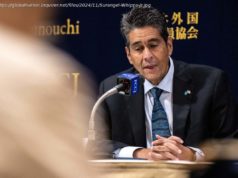For 90 years, the factory has been producing a special kind of ceramic recognised by mainland China as an intangible cultural heritage
Yuet Tung China Works, Hong Kong’s first and last factory for hand-painted porcelain, may eventually be relocated across the border after weathering the city’s highs and lows for the past 90 years.
Established in 1928, the company produces “Guang Cai,” a special kind of Qing dynasty ceramic originating from Guangzhou.
From workshops, first in Kowloon City and later in Kowloon Bay, the prized porcelain goods made their way to the homes of former governors Murray MacLehose and Chris Patten, as well as five-star hotels such as The Peninsula and Shangri-La.
At its height, the factory once employed more than 300 workers before the 1940s. But as competition from mainland China increased in the 1980s as its economy opened up, Yuet Tung China Works lost many of its overseas customers and now only has four workers.
“Moving back to Guangzhou may be the only way out,” said Tso Chi-chung, the manager and a third generation owner of the company. “In Hong Kong, all kinds of handicrafts are dying.”
Tso said he hoped they could find other employees in Guangzhou to work for the business, valued at several million Hong Kong dollars a year.
The skill of producing “Guang Cai” is recognised on the mainland as an intangible cultural heritage.
According to Dixon Ngai, who has been a part-time apprentice at the factory for five years, the Guangzhou government offers generous support to craftsmen.
Ngai, a third-year student at Hong Kong Polytechnic University, became interested in the niche skill in secondary school and has been studying under masters at Yuet Tung China Works during weekends.
“If Hongkongers appreciate the art more, we won’t need to move to Guangzhou,” he said. “It would be very pathetic if we were to leave Hong Kong.”
Tso did not expect Ngai, or any other young person, to take over the factory and preserve the dying art’s presence in the city. It was simply unrealistic to ask young workers to earn such meagre salaries with so many other better job options, Tso said.
But Ngai was more optimistic. “He fears that we won’t be able to feed ourselves, but who knows if there might be an industry transformation ahead,” he said. “We are in a difficult situation now, but the future is still uncertain.”
Some pieces from the Yuet Tung China Works collection will be exhibited at Times Square in Causeway Bay from Friday till January 21.






